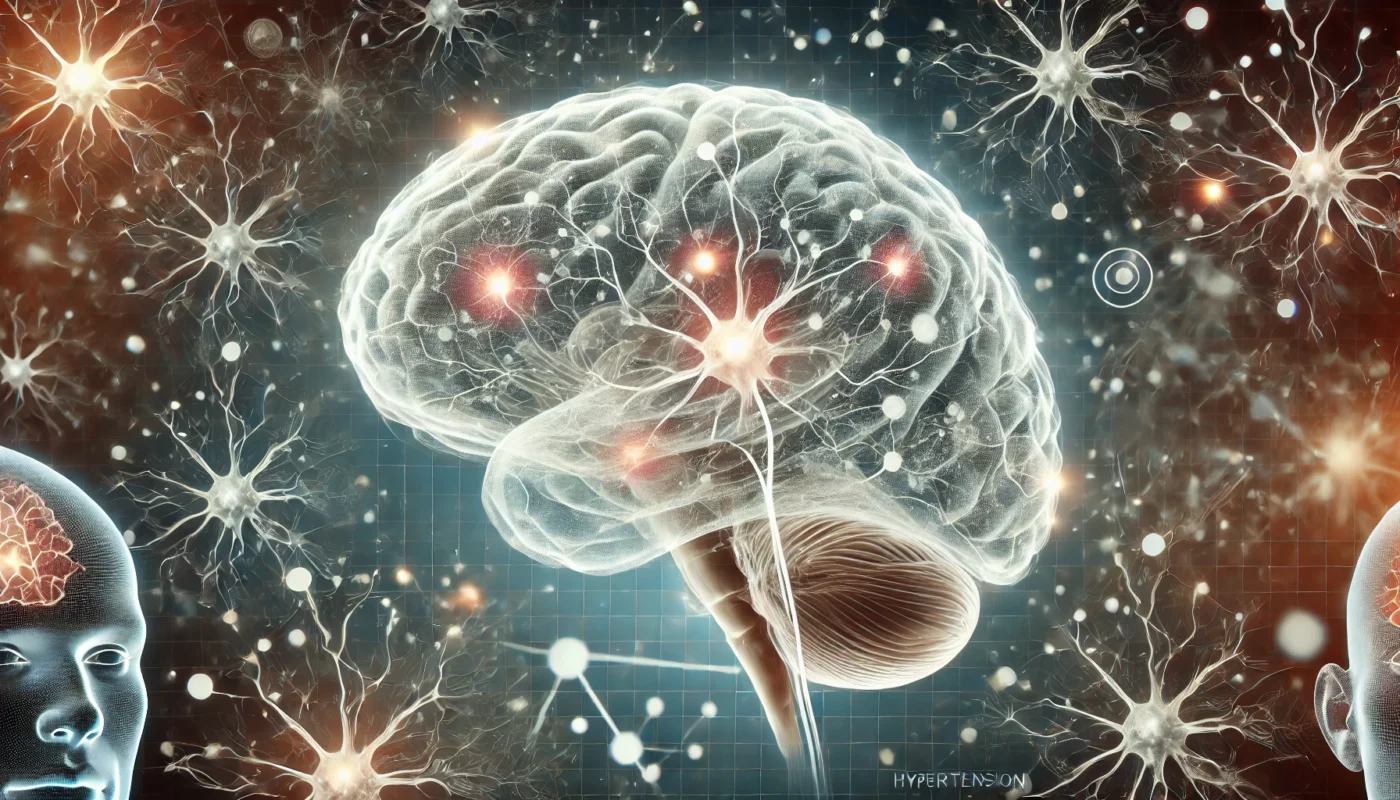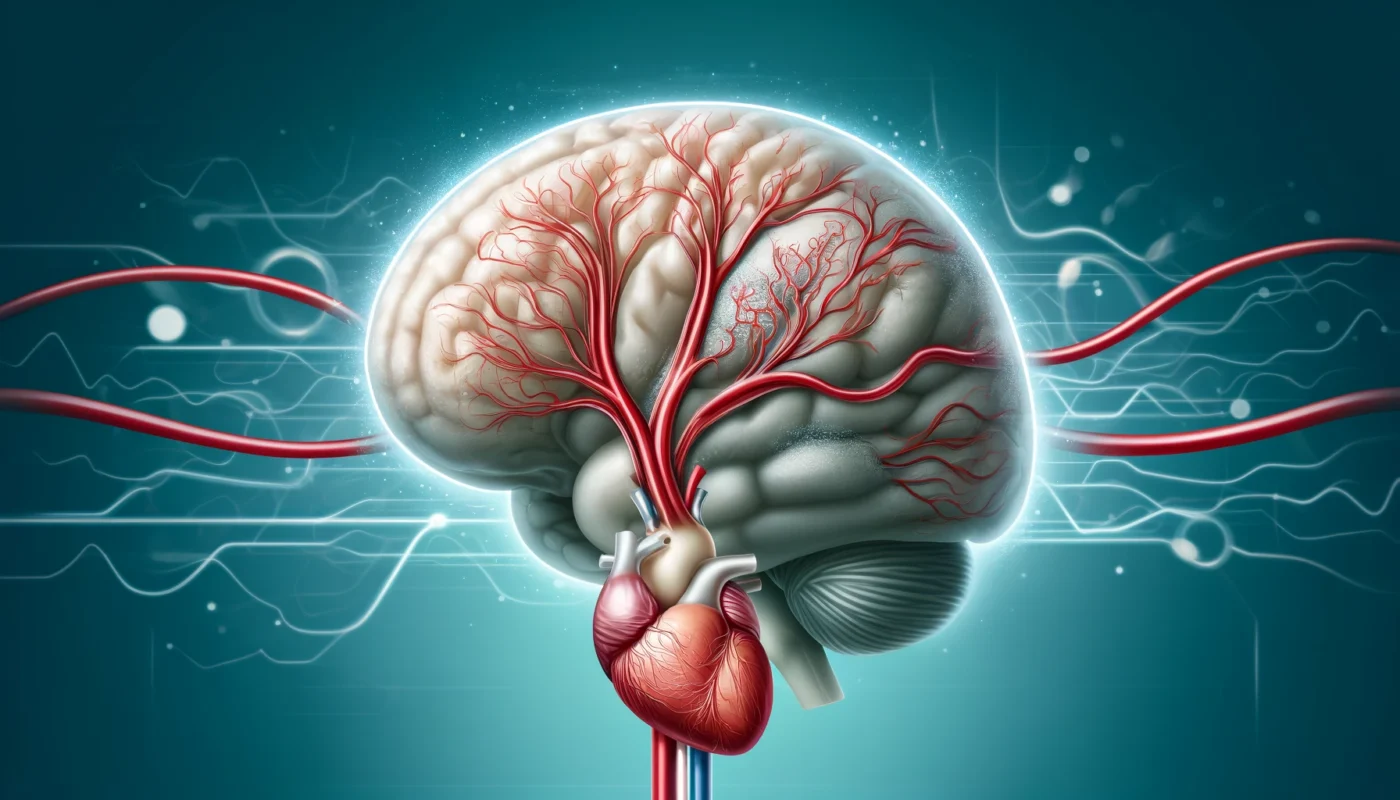Hypertension, or high blood pressure, is one of the most prevalent chronic health conditions, affecting nearly half of adults globally, according to the World Health Organization (WHO). Often called the “silent killer” due to its lack of symptoms, hypertension is a major risk factor for cardiovascular diseases, stroke, and kidney failure. However, its effects on brain health, specifically cognitive decline, are less well-known but equally concerning. Research increasingly points to the significant role hypertension plays in accelerating cognitive impairments, contributing to conditions such as vascular dementia and Alzheimer’s disease. This article explores the connection between hypertension and cognitive decline, the mechanisms driving this relationship, and innovative treatments that may mitigate the long-term effects of high blood pressure on the brain.
You May Also Like: Hypertension and Neural Stimulation Devices: What the Research Says
Cognitive Decline: A Growing Concern
What Is Cognitive Decline?
Cognitive decline refers to a gradual loss of cognitive functions, including memory, attention, language, and problem-solving abilities. While mild cognitive decline may be a part of normal aging, more severe forms can progress to dementia, a condition that severely impacts quality of life and independence.
Prevalence of Cognitive Decline in Hypertensive Patients
Studies show that individuals with hypertension are at a significantly higher risk of cognitive decline and dementia. According to a 2019 study in Hypertension, individuals with uncontrolled high blood pressure were 60% more likely to develop cognitive impairment compared to those with normal blood pressure levels. This highlights the urgent need for effective management of hypertension to protect brain health.

How Hypertension Impacts Brain Health
1. Reduced Cerebral Blood Flow
Hypertension damages the blood vessels supplying the brain, leading to reduced blood flow. The brain relies on a constant supply of oxygen and nutrients, and even minor reductions in blood flow can impair cognitive functions.
- Evidence: A study published in Circulation Research (2017) found that chronic hypertension leads to microvascular changes in the brain, which are strongly associated with cognitive impairments and an increased risk of vascular dementia.
2. Small Vessel Disease and White Matter Lesions
Hypertension contributes to the development of small vessel disease (SVD), a condition that affects the tiny arteries in the brain. SVD causes white matter lesions, which are areas of dead or damaged brain tissue. These lesions are linked to memory loss, slower information processing, and executive function decline.
- Mechanism: Prolonged hypertension causes vessel walls to thicken, reducing their elasticity and ability to regulate blood flow, ultimately leading to structural brain changes.
3. Oxidative Stress and Inflammation
Chronic hypertension promotes oxidative stress and inflammation, both of which damage brain cells and contribute to neurodegenerative processes.
- Evidence: A study in The Journal of Neurology (2019) showed that elevated markers of inflammation were strongly correlated with cognitive decline in hypertensive patients.
4. Amyloid Plaques and Alzheimer’s Disease
Hypertension has been linked to the accumulation of amyloid plaques in the brain, a hallmark of Alzheimer’s disease. Impaired clearance of amyloid-beta proteins due to reduced cerebral blood flow exacerbates neurodegeneration.

Innovative Therapies for Hypertension-Related Cognitive Decline
1. Antihypertensive Medications
Controlling blood pressure is the first line of defense against hypertension-related cognitive decline. Common classes of antihypertensive medications include:
- Angiotensin-Converting Enzyme (ACE) Inhibitors and Angiotensin Receptor Blockers (ARBs): These medications reduce vascular resistance and improve blood flow to the brain.
- Evidence: A meta-analysis in Hypertension (2020) found that ARBs significantly reduced the risk of cognitive decline in hypertensive patients.
- Calcium Channel Blockers: These drugs prevent calcium from entering blood vessel walls, reducing vascular stiffness and improving brain perfusion.
- Diuretics: By reducing fluid retention, diuretics decrease blood pressure and reduce the risk of vascular damage.
2. Lifestyle Interventions
Lifestyle changes remain critical for preventing and managing hypertension and its cognitive effects.
- Dietary Approaches: The DASH (Dietary Approaches to Stop Hypertension) diet emphasizes fruits, vegetables, whole grains, and low-fat dairy, which collectively lower blood pressure and protect brain health.
- Evidence: A study in Neurology (2017) found that adherence to the DASH diet reduced cognitive decline in older adults.
- Exercise: Aerobic exercise improves blood flow to the brain and enhances neuroplasticity, reducing the risk of cognitive decline.
- Stress Reduction: Mindfulness meditation and yoga can lower blood pressure and mitigate the effects of chronic stress on brain health.
3. Neuroprotective Therapies
Emerging treatments focus on directly protecting the brain from hypertension-related damage.
- Anti-Inflammatory Agents: These therapies target the chronic inflammation associated with hypertension, reducing oxidative stress and protecting brain cells.
- Amyloid-Targeting Therapies: Experimental drugs aimed at clearing amyloid plaques may also benefit individuals with hypertension-induced cognitive decline.
4. Advanced Technologies
Technological innovations are playing an increasing role in addressing hypertension and its cognitive consequences.
- Brain Stimulation: Non-invasive techniques like transcranial magnetic stimulation (TMS) are being explored to improve cognitive functions in hypertensive patients.
- Artificial Intelligence (AI): AI-driven tools analyze blood pressure and cognitive data to provide personalized treatment plans and early warnings for at-risk individuals.

Nutritional Supplements for Brain and Vascular Health
Nutritional supplements can complement traditional therapies by addressing nutrient deficiencies and supporting vascular and cognitive health. Below are five evidence-based supplements:
1. Omega-3 Fatty Acids
Omega-3s reduce inflammation and oxidative stress, both of which are implicated in hypertension-related brain damage. A meta-analysis in Hypertension (2018) reported that omega-3 supplementation reduced SBP by 4 mmHg and improved cognitive performance in older adults.
2. Magnesium Glycinate
Magnesium helps relax blood vessels, improving cerebral blood flow and reducing vascular resistance. A study in Magnesium Research (2016) found that magnesium supplementation reduced systolic blood pressure (SBP) by 5 mmHg and improved endothelial function.
3. Coenzyme Q10 (CoQ10)
CoQ10 is a powerful antioxidant that protects brain cells from oxidative damage. A trial in Hypertension Research (2007) demonstrated that CoQ10 supplementation reduced SBP and improved markers of cognitive health.
4. Curcumin
Curcumin, the active compound in turmeric, has anti-inflammatory and neuroprotective properties. A study in The Journal of Alzheimer’s Disease (2019) showed that curcumin improved memory and attention in adults with mild cognitive impairment.
5. Hibiscus Extract
Hibiscus improves nitric oxide availability, enhancing blood flow to the brain and reducing blood pressure. Research in The Journal of Nutrition (2010) found that hibiscus tea reduced SBP by 6 mmHg in prehypertensive individuals.
The Future of Hypertension and Cognitive Decline Management
Precision Medicine and Biomarker Research
Advances in biomarker research are paving the way for personalized medicine, where treatment plans are tailored to an individual’s specific genetic and physiological profile.
- Example: Biomarkers such as inflammatory cytokines and amyloid-beta levels could guide the use of targeted therapies for hypertension-related cognitive decline.
Digital Health and Remote Monitoring
Wearable devices and apps that track blood pressure, physical activity, and cognitive performance enable real-time management of hypertension and brain health.
- Example: Smartwatches equipped with blood pressure monitoring sensors provide continuous data, allowing early detection of patterns associated with cognitive decline.

Conclusion
The link between hypertension and cognitive decline underscores the importance of managing blood pressure not only to protect cardiovascular health but also to preserve brain function. Hypertension contributes to cognitive impairment through mechanisms such as reduced cerebral blood flow, vascular damage, and inflammation. While traditional antihypertensive therapies and lifestyle changes remain the cornerstone of treatment, innovative therapies such as neuroprotective agents, advanced technologies, and precision medicine offer hope for mitigating the long-term effects of hypertension on the brain. By integrating these strategies with nutritional support and emerging tools, individuals can take proactive steps toward maintaining cognitive health and improving quality of life. As research continues to evolve, the future of hypertension and cognitive decline management looks increasingly promising.
References
- Hypertension. (2019). The impact of uncontrolled hypertension on cognitive function. Hypertension. Retrieved from https://www.ahajournals.org
- Circulation Research. (2017). Microvascular changes and their cognitive consequences. Circulation Research. Retrieved from https://www.ahajournals.org
- Neurology. (2017). DASH diet and cognitive decline: A longitudinal study. Neurology. Retrieved from https://n.neurology.org
- Magnesium Research. (2016). The role of magnesium in vascular health. Magnesium Research. Retrieved from https://www.springer.com
- The Journal of Nutrition. (2010). Hibiscus tea and its effects on vascular health. The Journal of Nutrition. Retrieved from https://academic.oup.com
Key TERMS for this article:
Hypertension, Cognitive Decline, Cerebral Blood Flow, Small Vessel Disease, Neuroprotection, Amyloid Plaques, Nutritional Supplements
Relevant and useful TAGS for this article:
Hypertension, Cognitive Decline, Brain Health, Blood Pressure Management, Vascular Health, Alzheimer’s Disease, Dementia Prevention, Nutritional Support, Neuroprotection, Holistic Health
Important Note: The information contained in this article is for general informational purposes only, and should not be construed as health or medical advice, nor is it intended to diagnose, prevent, treat, or cure any disease or health condition. Before embarking on any diet, fitness regimen, or program of nutritional supplementation, it is advisable to consult your healthcare professional in order to determine its safety and probable efficacy in terms of your individual state of health.
Regarding Nutritional Supplements Or Other Non-Prescription Health Products: If any nutritional supplements or other non-prescription health products are mentioned in the foregoing article, any claims or statements made about them have not been evaluated by the U.S. Food and Drug Administration, and such nutritional supplements or other health products are not intended to diagnose, treat, cure, or prevent any disease.

